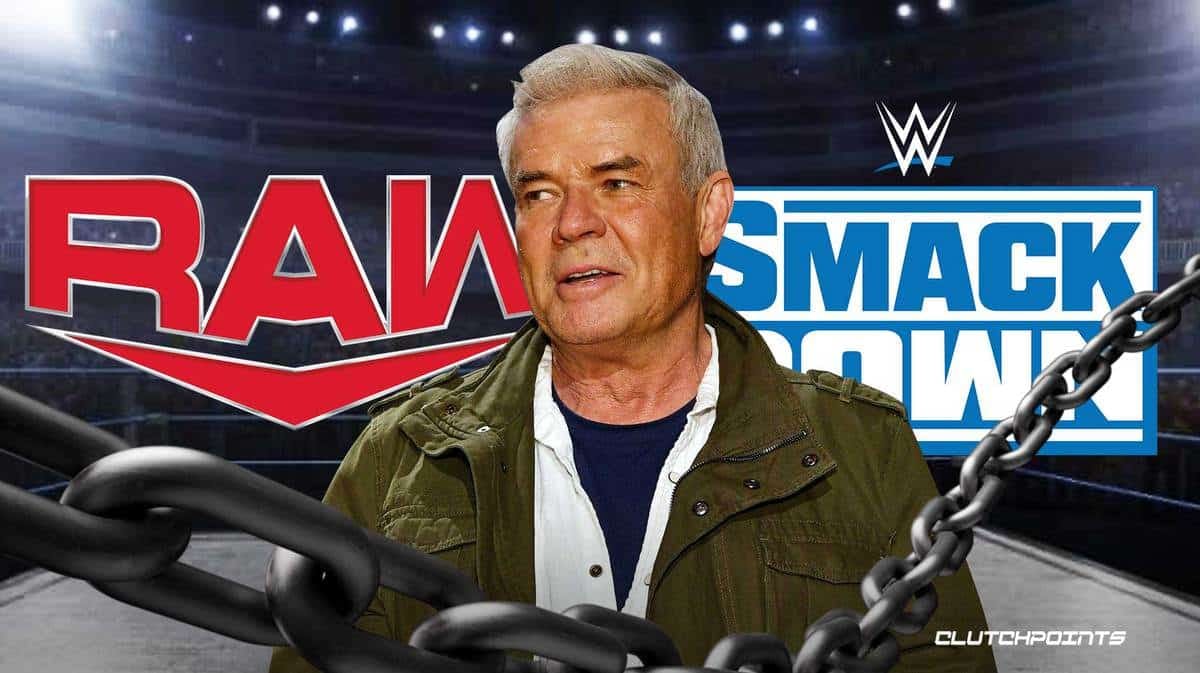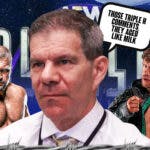With the WWE Draft officially in the rear-view mirror and the ramifications of its selections beginning to take effect on the RAW and NXT after Backlash, fans of The Fed have heavily discussed the decisions made by Paul “Triple H” Levesque involving his team's creative decisions, especially after announcing that both RAW and SmackDown stars would be eligible to wrestle for the new WWE World Heavyweight Championship.
Is a brand split really necessary in 2023? Yes, as, in the opinion of former WCW leader-turned-WWE Hall of Famer Eric Bischoff, the split helps to differentiate the two products in the eyes of broadcasting companies and thus can produce a bidding war between companies over which brand they would like the put on their channel.
“In 2019, I really didn’t communicate much to FOX. I was overseeing the SmackDown brand for a cup of coffee, and as a result, all of my conversations were kind of focused on the brand. I didn’t really have a lot of communication with the network,” Bischoff told his co-host Jon Alba on Strictly Business via Fightful. “A little bit, when it came to the brand. More as it related to promotions and things that we wanted to do leading up to the brand split, or the draft at that point. But it’s interesting to say what’s the value of the brand split. I don’t think there’s a value in a brand split. I think it’s a necessity. I guess the value, you could argue that the value is that you have two distinct brands. Therefore, you have two distinct television licensing opportunities.
“As in any television show, wrestling is no different, the quality of that show is oftentimes linked directly to the star power on it. In order to have two successful brands when you have two major media companies vying for the rights, bidding for the rights for those brands, the value has to be there. But the networks look at the rosters, and that’s the challenge. So it’s not so much immediate value, beyond the fact that you do have two separate brands that you can license. But it’s a necessity in order to keep your television parties happy, and that’s where it gets tricky because not all talent is created equal.”
You know, that last comment really is the most interesting part of a brand split: what happens when one brand has a star who outshines all others? WWE had this problem for the past few years with Roman Reigns and combatted it by having The Usos jump from RAW to SmackDown via their run as the Undisputed WWE Universal Tag Team Champions once Reigns stopped showing up on television regularly. While that option still remains open at least to some degree, as both of the Tag Team Championship belts can travel from brand to brand, and there are a few free agents, most notably Omos, Mustafa Ali, and Brock Lesnar, who can travel from brand to brand too, what happens when WWE creates the next great star that both television companies want to employ? Well that, as Bischoff noted, might be a problem.
Eric Bischoff explains what can make a brand split difficult for WWE.
Diving down the roster-building rabbit hole in the world of brand splits a bit further, Bischoff noted that the biggest issue a company like WWE could find itself with is creating a new star that both brands want to employ, which, in turn, would lead to one partner feeling shortchanged.
“You can have your roster set and feel really good about it, but if you have somebody emerge as the biggest star in the company, who gets that star?” Bischoff said. “Both networks are gonna want that star, and that’s when it becomes tricky because you’ve got to keep your television partners happy. If you’ve got one star, star A, who’s perceived to be and is, a bigger star that gets better ratings perhaps or by any other metric, is just considered to be the star in WWE at that particular moment, if that star is not on your network, you’re not happy about that. So that’s the challenge, is keeping your network partners happy. That’s the biggest challenge.”
Could the day eventually come when, say, Cody Rhodes defeats Reigns to become the new WWE Universal Champion, and suddenly, RAW becomes jealous that the “Grandson of a Plummer” becomes a SmackDown-only performer? Only time will tell, but it's safe to say television deals, much like booking live professional wrestling, is a lot easier said than done.




